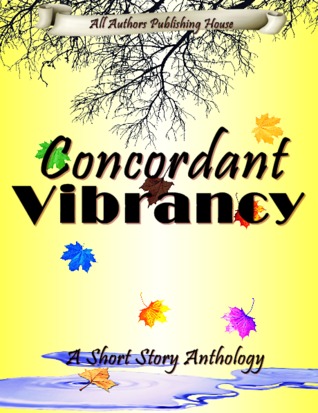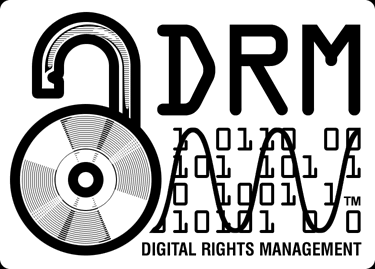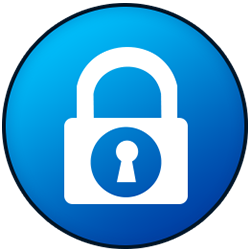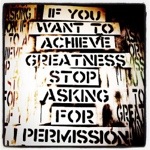
That is a question that can have many answers, and I’m willing to bet that if you took a poll with authors, you would get varied opinions, ideas, and reasons why. And to me, that is the beauty of the question – each author, with their own creative minds and with their own creative ideas will have their own reasons why. But before we get to that, the first question we have to ask ourselves is why do we write the first place? If yes me that question my answer will always be, because I Iove to write. Our love for writing propels us to use our creativeness, refine it, and release it to the world. We spend hours, days, months, and sometimes even years getting that story out of our head and ready for readers to enjoy. To do that, you have to get published – either electronically or in print. This leads back to the title of this post.
The answer lies within the prospects of you getting published by a one of the ‘Big 6’ publishing houses. (It may be the Big 5 by now, based on mergers and buy-outs.) If you are one of the few to get that big deal, then most of the things that involve the process of self-publishing will not concern you. The publisher will take care of all the behind-the-scene details. If you are not one of those few then the answer is . . . YES! But this post isn’t about traditional vs self-publishing.
Now that we got all of that out of the way, let’s focus on what most of us will face – then ins-and-outs of self-publishing.
ALL DONE
Now that we are done with our novel, novella, or short-story, we need to refine it, edit it, and make it ready for the masses. The process of editing and having a second, third, and even a fourth draft is something for another post, but the editing process must be addressed seriously before moving on to the next step. Now once we have that done and we have our cover art done, we can start to see the light at the end of the tunnel. There are other things that are involved in the self-publishing process, and again, that is something for another article.
I want to go back to something I wrote earlier – We write because we love to do it. For me, that is the biggest truth in all of this. Believe me, I will take all the profits that my work produces, icing on the cake, if you will. But the feeling of accomplishment and satisfaction of setting a goal and completing it is the number one reason. Writing something that is yours gives you total control, and that control is one of the great advantages of going indie.
CONTROL
The times have changed and the best part of self-publishing is having control of everything about your work from start to finish. Most of the authors I know, and have corresponded with, prefer having a grasp on their projects and their future. While having control comes with its own financial costs, in the end, a self-published author will always receive more of a profit because of substantially lower commission rates. And yes, while we do write because we love to do it, once we put our product out into the public and it is up for sale, then their has to be some business-minded thinking involved.
Having complete control that comes with self-publishing, is the biggest difference with being traditionally-published. You get to decide which way you want your story to go. You get to decide what cover art works best for you. Only the author of the story they tell, or book they write, can know what concept they want their book cover to reveal. In my own case, I have done cover art prior to writing and I have done them after the story was finished. Both have their advantages and both can guide you in your writing based on what your cover reveals. Another part of that control Is for you to decide on doing your cover art yourself or hiring a cover designer to get it just the way you want it. Sometimes it’s good to get someone else’s perspective and ideas. But again, you have the control!
Since there are so many distributors to make your book available, deciding on where, when, and setting the pricing points is entirely up to you. Publishing ebooks does not cost a thing, if you take the time and learn how to do it yourself. If not, with all the resources available, you can get your work formatted at a relatively low cost.
If you decide to sale your book in print, once the file is in the proper format, usually PDF, you can have your book up for sale at no cost. This is possible because of POD, or print-on-demand. Basically, your book is a file sitting on a company’s server and when someone places an order to buy your book, it prints it, cover and all, and sends it out to the reader. The companies involved in this, (Createspace, Lulu, Lightning Source) take their cost for printing, paper, etc, then you get the residual. The best part of publishing your books these two ways is CONTROL. You choose the sale price, thus determining your profit percentage. Being able to have your book in paperback and it not cost a thing is almost too hard to believe, but it is very real and being done daily.
ACCOMPLISHMENT
Doing it yourself, from start to finish, gives you an overwhelming sense of accomplishment – more so than being traditionally-published, in my opinion. I say that because it is a long road from the time you type or write your first word of your masterpiece to the fine-polished and finished product. At that point, only YOU truly know how much hard work you have put into it. The blood, sweat, and tears are only experienced by you. And no matter the sales or the reviews, good or bad, you will have done something many people have said they would do . . . finish writing a book! The sense of accomplishment in that can never be taken away from you. You gave birth to your idea and saw it to the end.
TAKING RESPONSIBILITY
Remember when you were a kid and you did something that would get you in trouble? Back then most of us would not take responsibility for our bad actions, and it was only until our parents ‘persuaded’ us into telling the truth. But taking responsibility for something as exciting as writing a book is easy because it should fill you with a sense of pride . But the difference here is that the words you have ‘penned’ are solely yours – your ideas, thoughts, and hard work. You were responsible for the finished product, and if you did it the self-published route, then it’s all your baby to claim and be proud of.
THE JOURNEY
Speaking for myself and my travels down this self-publishing road, I am very happy with what I have accomplished. Make no mistake, writing is hard work, and if you add in the rest of what goes along with self-publishing, the work is even harder, but in the end, knowing you did it right and did it yourself will propel you to your next big project. The self-confidence that self-publishing brings is priceless. We can’t forget we have to do all of the little things to put out a good product and make it just as professional as a ‘Big 6’ production.
So get out there and gather as much information as possible and use that to make your dream come true . . . and Self-Publish!
A. Lopez, Jr.
(artwork by Richard Krzemien)









 Debbie Boswell has a B.S.
Debbie Boswell has a B.S.  The first step is always the hardest.
The first step is always the hardest. 